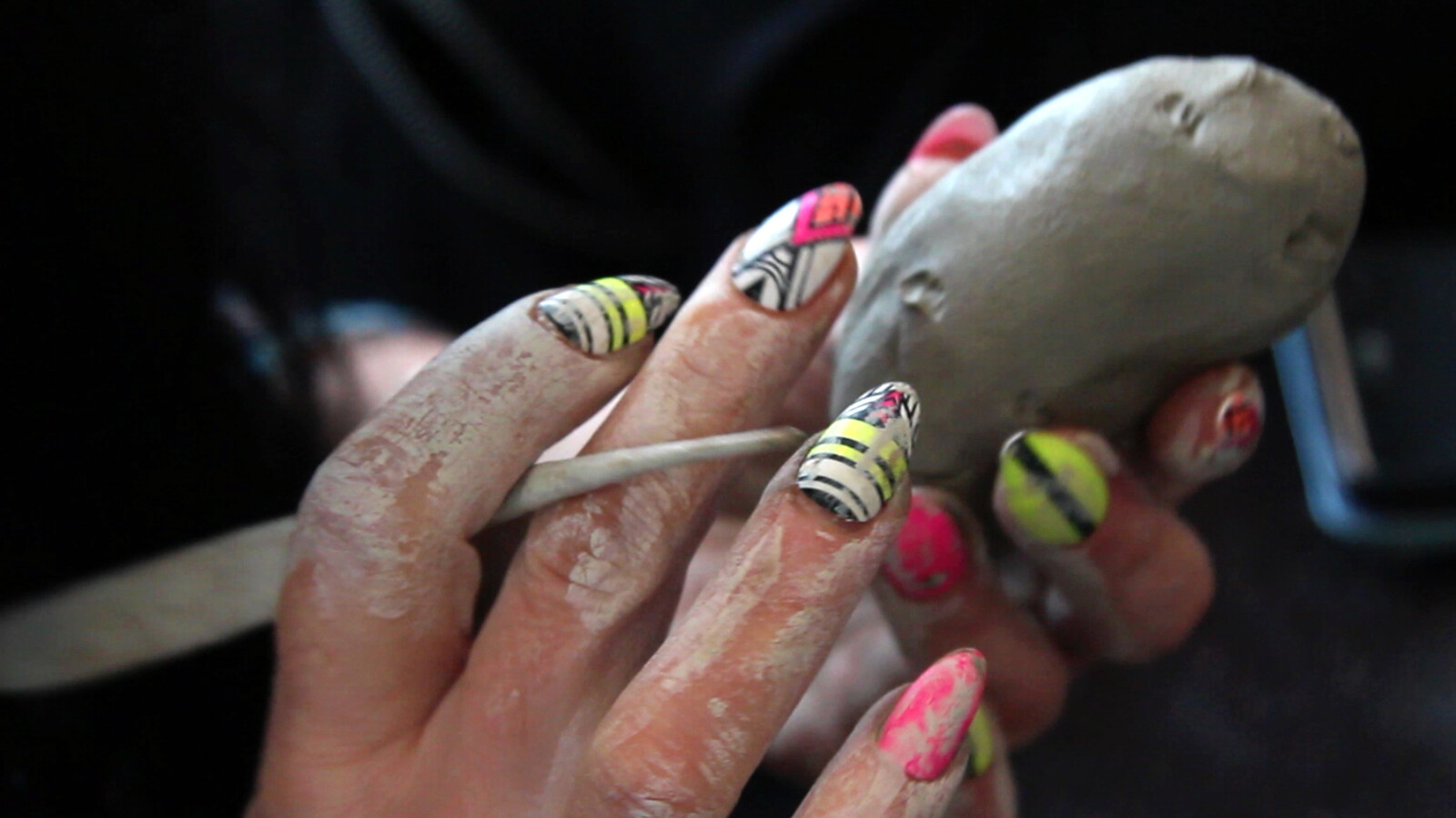From Ground to Horizon
November 13, 2021–February 13, 2022
Mauritiuswall 35
50676 Cologne
Germany
Hours: Thursday–Sunday 12–7pm
T +49 221 30234466
info@temporarygallery.org
Creating collaborative situations, processes and actions underpins Alicja Rogalska’s artistic practice. She often works with people who live in precarious economic and political contexts, activists and researchers: migrant workers, people who have been stripped of their citizenship, care workers, street musicians, asylum seekers trained as lawyers, young farmers, folk singing groups or feminist and queer activists. What emerges from these interactions are temporary collectives formed on the basis of a shared life situation, class, political beliefs or a commitment to social change. The videos, images and objects created through the collective processes foreground moments of agency, rebellion and solidarity. Questioning the logic of capitalism, the works attempt to carve a space for imagining other, more just possibilities.
In her texts on the concept of presentist democracy, Isabell Lorey writes that subjectivation has the “potential of socially transforming empowerment—not as the intentional political action of an autonomous subject, but in the practices and moments of the constituent power of the manifold many.” Aiming to question the usual understanding of immediacy and presence as a negation of political representation, the unwanted heritage of Hegel’s thought, she uses Benjamin’s idea of now-time to validate all that contributes to the emergence of new political subjectivities. Distancing herself from the concepts of linearity and progress she writes: “Presentist democracy breaks through liberal-democratic times and spaces. It becomes a new form of democracy in which a ‘good life’ becomes possible for the many. Presentist democracy does not live from a postponed promise for the future. It is already practised in the actuality, in the now-time of struggles.” For the precarious, the connection with the past has been broken and the future can’t be projected, so: “One must be able to dare to begin anew and affirm becoming in the present. The practices of acting, thinking, and feeling never merely continue what is past; they are neither simply routine or habit.” Through initiating collective actions, Alicja Rogalska uses art’s potential to capture us in the present moment and extend it, managing to help her collaborators reconstitute themselves as subjects within a certain collective perspective. In a way, what an artistic project generates here is a network of solidarity that can last much longer than the project itself. The sensual layer of the artworks helps to express and consolidate the emotional landscape the subjects carry within them, their specific individual ‘ground’. Through the collective effort within the frame of an artistic project another landscape emerges—a horizon, an opening, a rift—that enables going beyond the legal, economic or social status quo.
Alicja Rogalska is a Polish-born interdisciplinary artist based in London and Berlin and working internationally. Rogalska graduated with an MA in Cultural Studies from Warsaw University and an MFA in Fine Art from Goldsmiths College, where she is currently a PhD researcher in the Art Department. She recently presented her work at Kunsthalle Bratislava (2021), Kunsthalle Wien (Vienna, 2020—2021), OFF Biennale (Budapest, 2020—2021) and Tabakalera (San Sebastian, 2020). Rogalska is currently artist in residence at the Faculty of Social Sciences at Essex University (2019—2021) and the DAAD Artists-in-Berlin Program 2020 fellow.
Curated by Aneta Rostkowska, the exhibition is Rogalska’s first solo show in Germany, gathering artworks made between 2011 and 2021. It sits within an immersive, landscape-like exhibition design by Mateusz Okoński and is accompanied by a rich public programme, including an action in public space, an artist talk, a guided tour, a reading session, a lecture on socially engaged art and a wellness day for Cologne city activists. The exhibition is supported by the DAAD Artists-in-Berlin Program and happens in conjunction with “beuys 2021: 100 years of joseph beuys.”
Quotes: Isabell Lorey, “Presentist Democracy: The Now-Time of Struggles,” in: Andreas Oberprantacher, Andrei Siclodi (ed.), Subjectivation in Political Theory and Contemporary Practices, Palgrave Macmillian London South Yarra Sydney 2016, p. 152, 160 and Isabell Lorey, Presentist Democracy. Reconceptualizing the Present, in: Quinn Latimer, Adam Szymczyk (ed.), documenta 14. Munich: Reader, Prestel 2017, p. 185.


